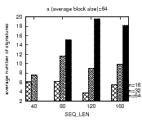
Real-Time Systems Group

 |
Real-Time Systems Group |
 |
|---|
Introduction |
||||||||||||||||||||||||||
|---|---|---|---|---|---|---|---|---|---|---|---|---|---|---|---|---|---|---|---|---|---|---|---|---|---|---|
The Real-Time Systems research group is headed by Prof. Aloysius Mok. In the past few years, we have worked towards laying the groundwork for establishing a firm theoretical foundation for real-time systems and also to build design tools based on this foundation. Our work can be categorized into three areas as follows:
|
||||||||||||||||||||||||||
Current Projects |
||||||||||||||||||||||||||
 |
WirelessHART | |||||||||||||||||||||||||
| Wireless technology has been regarded as a paradigm shifter in the process industry. The first open wireless communication standard specifically designed for process measurement and control applications, WirelessHART was officially released in September 2007 (as a part of the HART 7 Specification) by the HART Communication Foundation. WirelessHART is a secure and TDMA-based wireless mesh networking technology operating in the 2.4 GHz ISM radio band. Now, we are trying to build a WirelessHART protocol stack for it. | ||||||||||||||||||||||||||
 |
Software Verification | |||||||||||||||||||||||||
| Model-based development has been recognized as a practical method for efficiently developing correct and robust control-oriented real-time embedded systems.Generally model-based development has focused on verification and testing for functional or timeliness aspects. However, embedded software also involves para-functional resource-related aspects, termed resource(bound) properties.Yet verification and testing for such resource properties has been rarely addressed in executable model-based development. Resource-related language constructs are not incorporated in the action semantics of executable models since early design is intended to be platform independent. Here, we propose a software engineering discipline which incorporates resource safety verification into a design and development methodology for embedded systems . | ||||||||||||||||||||||||||
 |
Real-time Non-Preemptive Scheduling | |||||||||||||||||||||||||
| Unlike preemptive scheduling policies, non-preemptive real-time scheduling policies can exhibit anomalies even for the single-processor case. In particular, a task set that is schedulable by a non-preemptive scheduler may become unschedulable when the utilization of the task set decreases relative to the CPU speed, e.g., when a faster CPU is used to run the same task set. We define the notion of robustness to capture the essence of the scheduling anomaly on real-time system performance. We shall show that it is difficult to test for robustness in general but there are sufficient conditions for guaranteeing robustness. | ||||||||||||||||||||||||||
 |
Real-time introsion prevention | |||||||||||||||||||||||||
| The use of automatic signature generators (ASGs) as a defense against fast propagating, zero-day worms has received a lot of attention lately, and various attacks against these systems are also being discovered. Allergy attack is one of these attacks. Some ASGs employ some form of corpus-based mechanisms to retrofit for a low false positive rate. We shall show that corpus-based mechanisms are not a general solution against allergy attacks. In particular, we will identify two major weaknesses of a corpus-based defense and present advanced allergy attacks that exploit them. | ||||||||||||||||||||||||||
Current Members
|
||||||||||||||||||||||||||
Alumni |
||||||||||||||||||||||||||
 |
Deji Chen | |||||||||||||||||||||||||
| Tei-Wei Kuo | ||||||||||||||||||||||||||
| Paul Clements | ||||||||||||||||||||||||||
| Chih-kan Wang | ||||||||||||||||||||||||||
| Farn Wang | ||||||||||||||||||||||||||
| Supoj Suthandavibul | ||||||||||||||||||||||||||
| Farnam Jahanian | ||||||||||||||||||||||||||
| Carlos Puchol | ||||||||||||||||||||||||||
| Doug Stuart | ||||||||||||||||||||||||||
| Duu-chung Tsou | ||||||||||||||||||||||||||
| Guangtian Liu | ||||||||||||||||||||||||||
| Rwo-Hsi Wang | ||||||||||||||||||||||||||
| Jin Yang | ||||||||||||||||||||||||||